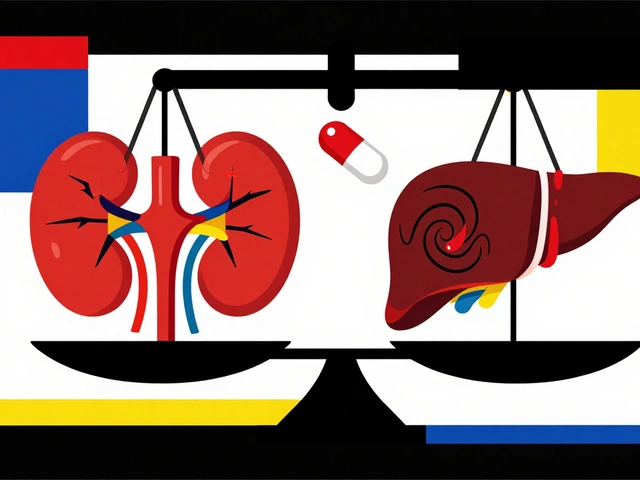Louisiana's Legal Shift: Mifepristone and Misoprostol Regulation
In a groundbreaking legislative change, Louisiana has become the first state in the United States to classify the commonly used abortion pills mifepristone and misoprostol as 'controlled, dangerous substances.' Signed into law by Governor Jeff Landry on May 24, 2024, this new classification shifts these medications from non-controlled to controlled Schedule 4 drugs. This reclassification has significant repercussions, especially in the context of the already stringent abortion laws in the state.
New Legal Status and Penalties
The legislation marks a dramatic change in how these drugs are regulated. With the new classification as Schedule 4 drugs, the possession of mifepristone and misoprostol without a valid prescription is now criminalized. The penalties for such possession are severe, including imprisonment for up to five years and fines reaching $5,000. However, in a nod to the complexities of reproductive health, the legislation specifically exempts pregnant women from these penalties. Despite this exemption, the potential implications for women's health and access to safe abortion services are profound.
Stringent Abortion Regulations in Louisiana
Louisiana has long been known for its stringent abortion regulations, which allow the procedure only in life-threatening situations or when the fetus has a fatal condition. The state's latest move to classify mifepristone and misoprostol as controlled substances is seen as a further restriction on medication abortion. Critics argue that this legislation is part of a broader strategy to limit reproductive rights within the state, making it increasingly difficult for women to access safe and legal abortion services.
Critics and Proponents Clash
The new law has sparked widespread debate, with strong opinions on both sides. Critics argue that the classification of these drugs as controlled substances lacks a scientific basis. Mifepristone and misoprostol are not addictive and have been safely used for years for various medical purposes, including managing miscarriages and inducing labor, in addition to medication abortion. They raise concerns that this move could criminalize individuals for possessing FDA-approved medications without proper justification, leading to unnecessary legal and health consequences.
Impact on Research and Interstate Access
The legislation could create new hurdles for clinical studies and interstate access to these medications. Researchers working with these drugs might face delays and increased costs due to the added regulatory requirements. The interstate movement of these medications could also become more complicated, potentially impacting patients who rely on them for non-abortion-related medical purposes.
Federal and State Tensions
The Biden-Harris campaign has expressed strong disapproval of Louisiana's new legislation. They argue that it undermines federal guidelines, which do not classify these drugs as controlled substances due to their safety and lack of abuse potential. The campaign has highlighted concerns about potential government surveillance and imprisonment for women possessing these medications, pointing to broader implications for reproductive rights across the country.
Attorney General Murrill's Defense
In defense of the legislation, Louisiana's Attorney General Liz Murrill emphasized the state's commitment to protecting residents' health and safety. She argued that the classification of mifepristone and misoprostol as controlled substances is a necessary step to ensure the well-being of the population. Proponents of the law maintain that it is designed to safeguard health, despite the intense controversy surrounding its implementation.
The Broader Implications and Future Directions
The move by Louisiana could set a precedent for other states considering similar restrictions on medication abortion. This development has the potential to reshape the landscape of reproductive rights and access to safe abortion services across the United States. As the debate continues, it remains to be seen how federal and state regulations will interact and what the long-term consequences will be for women's reproductive health.
The complexities of this issue highlight the ongoing struggle between protecting public health, upholding scientific integrity, and defending individual rights. Both sides of the argument bring valid concerns to the table, reflecting the deeply personal and contentious nature of reproductive health policy. As more states potentially follow Louisiana's lead, the national conversation on medication abortion and women's rights is bound to intensify.






John Petter
August 20, 2024 AT 14:22The reclassification of mifepristone and misoprostol as Schedule IV substances marks a pivotal shift in pharmaceutical policy, aligning Louisiana with a more rigorous control regime. This move ostensibly aims to safeguard public health, yet the practical ramifications for clinicians and patients are profound.
By treating these medications as controlled, the state imposes stricter record‑keeping and dispensing requirements, which could inadvertently limit access to legitimate medical care. Moreover, the exemption for pregnant women, while symbolically generous, fails to address the broader clinical contexts in which these drugs are employed, such as management of miscarriages. Ultimately, the legislation reflects a growing trend toward heightened regulation of reproductive health tools.
Annie Tian
August 20, 2024 AT 15:20Indeed, the intricacies of this policy demand careful scrutiny; the legislative intent appears rooted in a desire to protect, yet the execution may generate unintended barriers, which warrants a balanced discussion, especially for healthcare providers striving to maintain patient safety.
April Knof
August 20, 2024 AT 18:06From a cultural standpoint, Louisiana's decision resonates with historical patterns of state‑level intervention in personal health matters, echoing past debates over medical autonomy that have shaped the region's public discourse.
Tina Johnson
August 20, 2024 AT 22:16Such a retrograde measure disregards the extensive body of scientific literature confirming the non‑addictive nature of these compounds, thereby imposing punitive frameworks without empirical justification, and it constitutes an affront to evidence‑based practice.
Sharon Cohen
August 20, 2024 AT 23:40The drama that unfolds around this law is nothing short of theatrical tragedy.
Rebecca Mikell
August 21, 2024 AT 03:50While the emotional tenor of the debate is high, it is essential to ground our perspectives in factual analysis, ensuring that compassion does not eclipse the need for reliable data.
Ellie Hartman
August 21, 2024 AT 08:00As we navigate these regulatory waters, it may be helpful to consider collaborative approaches that involve both medical professionals and community advocates, fostering mutual understanding and shared responsibility.
Alyssa Griffiths
August 21, 2024 AT 13:33One must contemplate the shadowy agenda behind such legislation; is this not part of a coordinated effort orchestrated by elites to monitor bodily autonomy, perhaps linked to broader surveillance initiatives that have been quietly proliferating across the nation?
Jason Divinity
August 21, 2024 AT 20:30The recent statutory amendment in Louisiana, recasting mifepristone and misoprostol as Schedule IV controlled substances, constitutes a momentous departure from established pharmaceutical jurisprudence.
Historically, controlled‑substance designations have been reserved for agents possessing demonstrable abuse potential, a criterion these two medications conspicuously fail to meet.
Consequently, the legal machinery now obliges prescribers to navigate a labyrinth of registration, inventory, and reporting obligations previously unnecessary for routine obstetric care.
Such administrative encumbrances risk diverting clinical resources away from patient‑centered services toward bureaucratic compliance. Moreover, the exemption carved for pregnant individuals, while ostensibly protective, paradoxically creates a tiered legal landscape wherein non‑pregnant carriers could face incarceration for possession of identical compounds. This asymmetry not only undermines the principle of equal protection under the law but also fuels a climate of uncertainty among pharmacists, researchers, and advocacy groups. From a public‑health perspective, the restriction may precipitate a surge in underground procurement channels, thereby eroding the safety net afforded by regulated dispensing. Empirical studies have repeatedly demonstrated that medication‑induced abortions, when performed under medical supervision, carry low complication rates and are comparable in safety to surgical alternatives. Denying or complicating access to these proven therapies could inadvertently elevate maternal morbidity, a prospect antithetical to the very health‑preserving rationale proffered by legislators. Furthermore, the scientific community stands to bear a collateral burden, as the heightened regulatory threshold could stymie vital research into reproductive health, pharmacokinetics, and novel therapeutic applications. Institutions contemplating clinical trials may confront prohibitive cost escalations, delayed approvals, and an exodus of talent to more permissive jurisdictions. In the broader national tableau, Louisiana's precedent may embolden other states to emulate this restrictive paradigm, thereby fracturing the uniformity of reproductive healthcare across the union. Such a patchwork of statutes threatens to erode the cohesiveness of federal‑state regulatory frameworks, a discord that could precipitate costly litigation and policy gridlock. Nevertheless, proponents argue that the measure serves as a bulwark against potential misuse, invoking a precautionary principle that places societal safeguards above individual autonomy. While the desire to preempt any hypothetical abuse is understandable, policy ought to be calibrated to empirical risk, not speculative fear. In sum, a measured reassessment-balancing legitimate safety concerns with the imperatives of evidence‑based medicine-remains the prudent path forward, lest we sacrifice proven health outcomes on the altar of overregulation.
andrew parsons
August 22, 2024 AT 00:40It is morally indefensible to criminalize medical professionals for dispensing FDA‑approved medications!!! The ethical breach extends beyond legislation; it assaults the very foundations of compassionate care. Society must reject such draconian measures, uphold scientific truth, and protect the sanctity of life‑preserving choices. ✊🚫